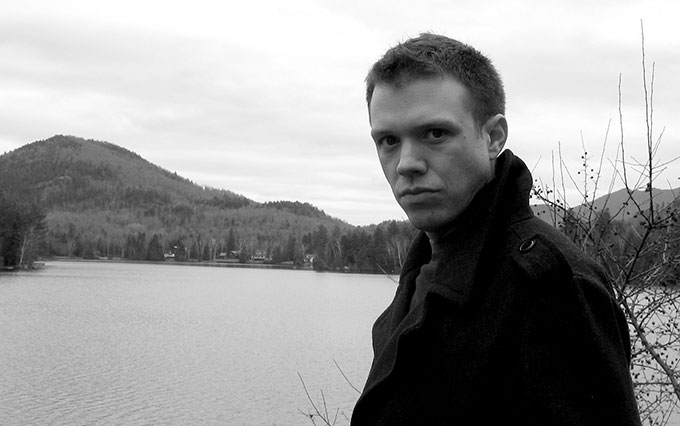A Classical Coffee Break
by Jan Jezioro

The Buffalo Chamber Players invite you over for a cup and an exotic dessert
In one of the very first local classical music concerts of the fall season, the Buffalo Chamber Players have set the bar high, as to program variety. Their season-opening program at 7:30pm on Wednesday, September 21, at their home in the Buffalo Seminary, moves from the Baroque era to the contemporary era, with a significant detour to a branch of obscure, Asian folk music that will probably be a revelation to almost anyone attending the concert.
Johann Sebastian Bach composed several hundred cantatas on religious themes that are generally acknowledged as a group to be one of the glories of European classical music. The religious cantatas were composed for weekly Sunday services as a way to make simple religious messages accessible and appealing to the general public, using sections of recitative, or narration, combined with solo arias, mixed arias, chorales, and orchestral interludes.
Though Bach must be ranked as one of the hardest-working composers in history, not to mention one of the truly inspired, he also must have enjoyed having a good time, as evidenced by his assuming the direction in 1729 of Leipzig’s Collegium Musicum. The group, founded by Telemann in 1702, consisted of musicians who met each Friday evening at Zimmermann’s Coffee House to give concerts. Though it is not known for certain, Bach probably composed his lighthearted “Coffee Cantata,” BMW211, for this group. Coffee drinking was a still suspect habit in the Vienna of 1729, though the custom had been introduced four decades or so earlier, after coffee was captured among the spoils of war, following the defeat of the Turks by the Polish King Jan Sobeski at the siege of Vienna in 1683. The amusing storyline deals with the attempts of a bourgeoisie father to break his marriage-age daughter of her coffee-drinking habits, by threatening to cut off her money supply, and when that doesn’t work, her ability to marry. The daughter finally capitulates, but only after she announces to the listeners that she will stipulate in the marriage contract that she be allowed her three cups a day. Singing the work are soprano Christina Lynch, tenor Jeffrey Porter, and bass Timothy Flynn. Another Bach work, the Ouverture from the Orchestral Suite No. 2, BWV 1067, will open the program.
Overtone vocalist and composer Dr. Alexander Glenfield’s research has taken him to Tuva and Mongolia, where he studied and performed with master throat-singers. Echoes of Derinkuyu is an experimental work for overtone vocalist and ensemble, utilizing the different throat-singing styles of Central Asia, Europe, and North America. “Named after an ancient city in Turkey that lies 85 meters underground, the work attempts to evoke archetypal sonic symbols, such as the echo, that may seem to have existed forever, outside of time, like the mysterious underground city of Derinkuyu itself,” Glenfield explains. Glenfield’s youtube video, “Seven Styles of Tuvan Koomei,” has generated more than 90,000 hits.
The Buffalo Chamber Players named Rob Deemer, associate professor of composition in the School of Music at SUNY Fredonia, composer-in-residence last season. He wrote Sex and Politics on a commission from the group, and his song settings of the elliptical poetry of American poet e.e. cummings, as interpreted by soprano Tony Arnold, was a highlight of the last season. Deemer says his La Maja Dolorosa originated as a re-setting of the text by Fernando Periquet from a Granados song cycle for soprano, viola, and piano during his graduate work at the Univeristy of Texas at Austin. “The work follows the psychological arc of Periquet’s text, beginning with a woman’s rage at the loss of her lover, moving through her denial and delusions of his return, and finally to catharsis and peace,” Deemer says. “In dramatic terms I envisioned the viola playing the part of the lost lover in the story while the piano could be seen as a neutral third party, a ubiquitous flamenco guitarist acting as a chorus to the doomed lovers.”
Rounding out the program is Estonian composer Arvo Pärt’s Mozart-Adagio for violin, cello, and piano, a work that combines the adagio from Mozart’s Sonata in F Major, K. 280 with elements of “tintinnabulation,” a deeply spiritual, minimalist compositional style created by Pärt and used in many of his works. The result is a hauntingly beautiful work, fittingly dedicated to the memory of Pärt’s friend, the Russian violinist Oleg Kagan.
A reception sponsored by Sweet_ness 7 Café will follow the performance. Tickets are $15, $5 for students, available at www.buffalochamberplayers.org and at the door.
blog comments powered by Disqus|
Issue Navigation> Issue Index > v10n37 (Week of Thursday, September 15) > A Classical Coffee Break This Week's Issue • Artvoice Daily • Artvoice TV • Events Calendar • Classifieds |









 Current Issue
Current Issue